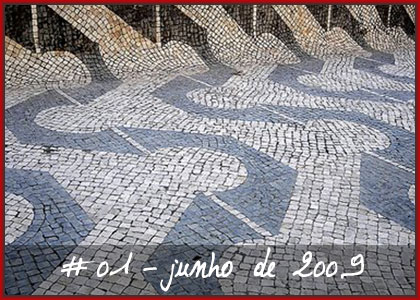EÇA DE QUEIRÓS E O CAPÍTULO 19 DE "MÍMESES"
DOI:
https://doi.org/10.11606/issn.2175-3180.v1i1p107-120Keywords:
Eça de Queirós, Auerbach, Realism, O crime do padre AmaroAbstract
Auerbach, in his most famous work, Mimesis, establishes that the great contribution of the Realistic school of the nineteenth-century was to bring voice to the proletariat in its novels, by representing its life and sufferings in a serious way. Eça de Queirós, as well as Machado de Assis, did not make that in his novels. It would be the Portuguese writer a realist “failed”? Our analysis of the novel O crime do padre Amaro shows quite the contrary that in this work Eça developed resources and other literary strategies other than direct protagonism of the poor in order to represent and to criticize more efficiently (in literary and social terms) the situation of the proletariat in Portugal.
Downloads
Downloads
Published
Issue
Section
License
Copyright (c) 2009 José Carlos Siqueira de Souza

This work is licensed under a Creative Commons Attribution-NonCommercial 4.0 International License.
O(s) autor(es) declara(m) automaticamente ao enviar um texto para publicação na revista Desassossego que o trabalho é de sua(s) autoria(s), assumindo total responsabilidade perante a lei nº 9.610, de 19 de fevereiro de 1998, no caso de plágio ou difamação, obrigando-se a responder pela originalidade do trabalho, inclusive por citações, transcrições, uso de nomes de pessoas e lugares, referências histórias e bibliográficas e tudo o mais que tiver sido incorporado ao seu texto, eximindo, desde já a equipe da Revista, bem como os organismos editoriais a ela vinculados de quaisquer prejuízos ou danos.
O(s) autor(s) permanece(m) sendo o(s) detentor(es) dos direitos autorais de seu(s) texto(s), mas autoriza(m) a equipe da Revista Desassossego a revisar, editar e publicar o texto, podendo esta sugerir alterações sempre que necessário.
O autor(s) declara(m) que sobre o seu texto não recai ônus de qualquer espécie, assim como a inexistência de contratos editoriais vigentes que impeçam sua publicação na Revista Desassossego, responsabilizando-se por reivindicações futuras e eventuais perdas e danos. Os originais enviados devem ser inéditos e não devem ser submetidos à outra(s) revista(s) durante o processo de avaliação.
Em casos de coautoria com respectivos orientadores e outros, faz-se necessária uma declaração do coautor autorizando a publicação do texto.
Entende-se, portanto, com o ato de submissão de qualquer material à Revista Desassossego, a plena concordância com estes termos e com as Normas para elaboração e submissão de trabalhos. O não cumprimento desses itens ou o não enquadramento às normas editoriais resultará na recusa do material.


